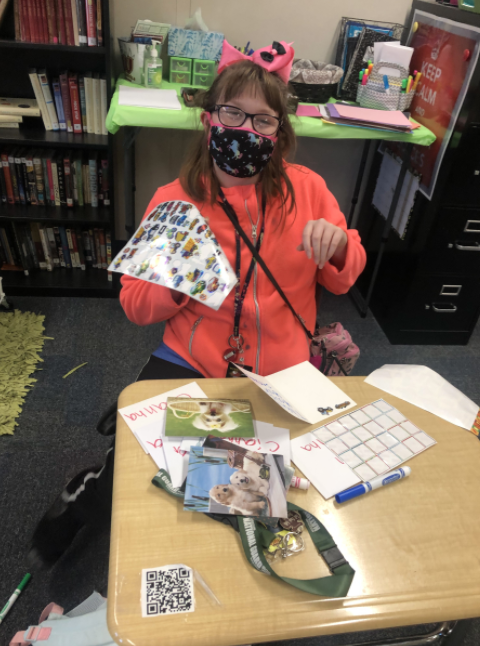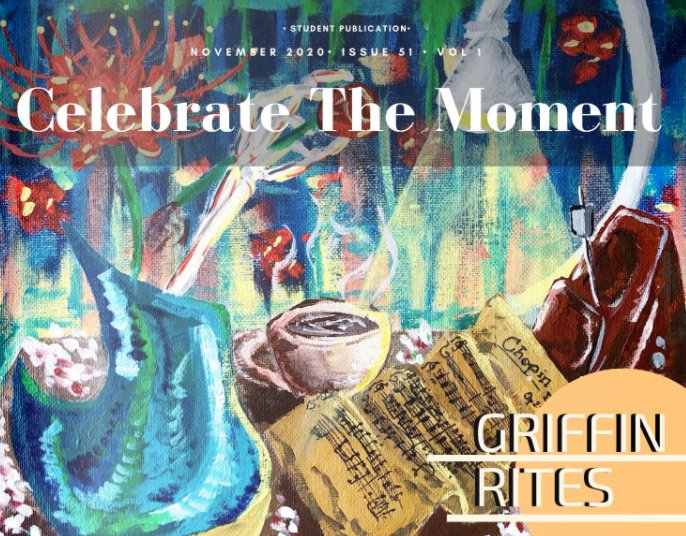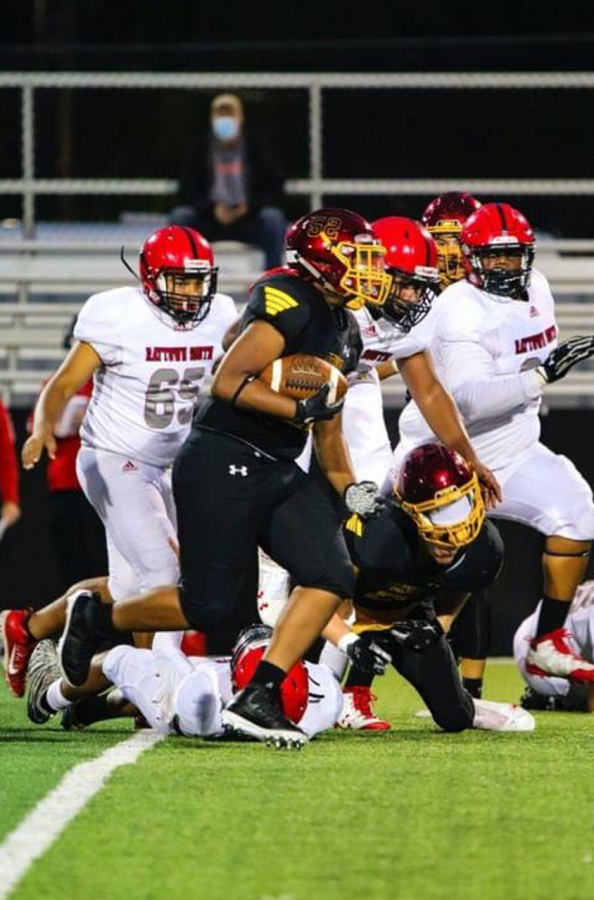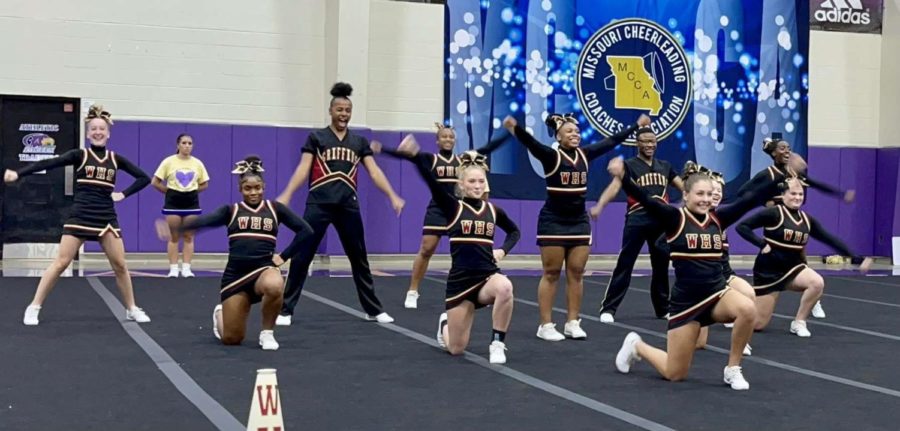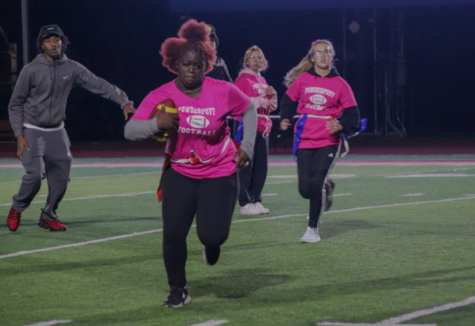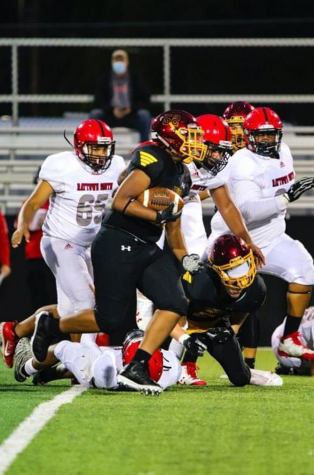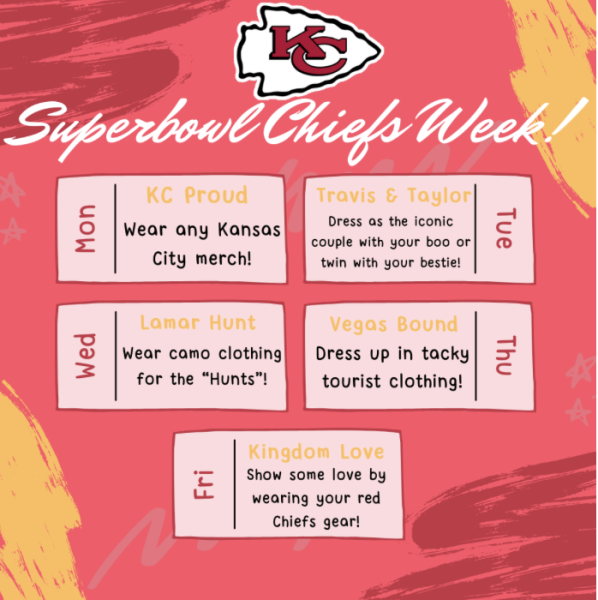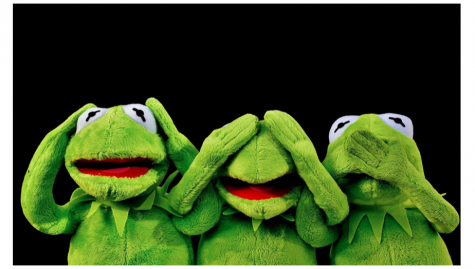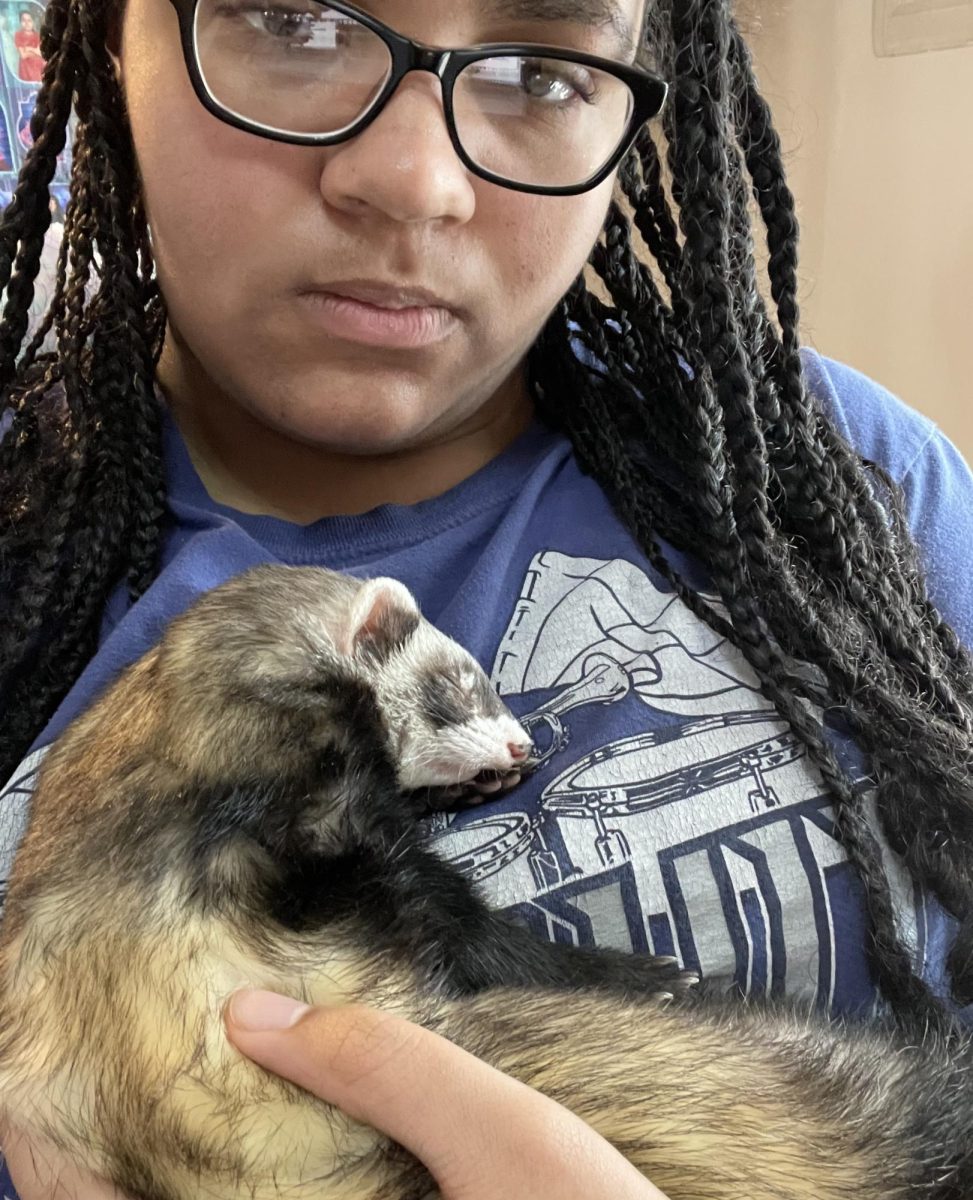Grit: A solution to the average student’s greatest problem
November 7, 2019
Many students, at Winnetonka and in high schools all across the country, are dealing with a serious lack of determination, an important skill needed to get them successfully through the school year. However, as part of an inclination to help her students, English teacher Be-Asia McKerracher presents a solution: grit.
McKerracher said her desire to spread the message of grit came from Professor of Psychology (University of Pennsylvania) Angela Duckworth’s TED Talk, crediting Duckworth as “the author of the big grit movement.” McKerracher stumbled upon the TED Talk while searching for a way to motivate her College English class a few years ago.
Duckworth defines grit as “passion and sustained persistence applied toward long-term achievement, with no particular concern for rewards or recognition along the way.” Likewise, McKerracher said she sees grit as the ability to persevere in any situation.

“The general definition of grit is perseverance over a long period of time,” McKerracher said. “‘Grit is running a marathon and not running a sprint (quoting Duckworth).’ It’s being able to work hard for long term goals. I describe it as working hard, even if you don’t understand the first time. [It’s] like pushing through.”
The “grit movement” began as Duck- worth was teaching 7th grade mathematics in New York. She became interested in the psychology behind her student’s motivation, performance and perseverance, which led her to continue graduate school and begin research on what she called “grit.”
According to McKerracher, the best time to apply the grit mindset is “probably like around now.” However, she also expressed it is equally important to persevere in the spring, when students and teachers alike are beginning to focus on the summer.
“It’s easy to have grit at the beginning of the year because things are easier in all of your classes,” McKerracher said. “But around September and October is when classes start getting harder because you start going to that next level of assignments. Teachers aren’t really [reviewing] stuff anymore and sometimes it’s hard to keep up with them. Talking to [students] about grit in April and March is really good too, especially for seniors because their brain, by March, is looking to their new life. They’re done with high school.”
As a teacher, McKerracher said she sees some students “hit a wall” as the school year goes on, leaving them unable to complete the work and move forward. She attributes this behavior to the build-up of pressure students are subjected to, especially the anticipation of life after high school.
Duckworth points out, on her web- site, that grit can be more applicable to some situations than others. For example, graduating a program despite unfortunate circumstances is an indicator of grit, whereas the ability to study for an exam when other activities look more appealing may more-so be an indicator of self-control.
One former Winnetonka student, who wished to remain anonymous, said that their lack of grit ultimately prevented them from graduating high school.
“I didn’t have the grit to do it any- more,” the former student said. “Once there was too much of it [work] on my plate, I didn’t have the motivation. The problem is that when it comes down to stuff like sitting down and doing busy work…, that is where grit is needed because in the end, it’s a fact of life, it’s going to happen. You’re going to get busy work, just do it.”
Similar to the “wall” metaphor McKerracher described, the former student analogizes high school to floating along in a stream of water, wherein some students reach dams, or obstacles, and are unable to proceed.
“So when we reach one of these im- passes, these dams, some people hit it and just stop,” they said. “Now, they’re just in this pond, this build up of water, and don’t know where to go. And I’d say to those people in that pond, sometimes it feels like you can’t do anything about it, so have someone else do it with you, get help.”
This issue of the “dams” is a very real one for all kinds of high school students. While the former student suggested that students should get help, McKerracher provides a few more possible solutions for relieving the buildup of pressure she mentioned.
“I feel like teachers in schools could put less emphasis on college or less emphasis on choice,” McKerracher said. “[We ask] ‘what you’re going to do when you grow up?’ as opposed to asking ‘are you learning?’ or ‘are you happy in the classes you’re taking?’ or ‘are you interested in something else?’ It’s just to release some of that pressure, because I think even my sophomores feel the pressure of college and they’re years away from even having to apply.”
Additionally, McKerracher also noted the presence of a culture of practically rushing students into college and assuming that young scholars have already decided on all their plans following high school.
“We assume that kids, by the time they’re freshman, are supposed to know what they want to do with the rest of their life,” McKerracher said. “[For example,] ‘You said you were going to be a doctor, so you better take all these hard biology classes and chemistry classes and math classes, or you can’t be a doctor.’ But at 15, you don’t really know what you want to do with the rest of your life. You might have an idea, but it’s probably going to change before you get to the rest of your life.”
McKerracher also suggested that taking some time to relax and enjoy some of the more childish aspects of life could alleviate the stress of high school. She said that doing this can refresh your mind and make it easier to apply grit successfully.
“I was in class saying, ‘here’s some things you can do when you go home,’ like ‘you can go out in the grass’, or ‘you can go play with the cricket’. And they’re like, ‘nobody has time for that’ and ‘we have to go to work’ and that nobody wants to go outside. It’s been a long time since we’ve done anything silly and goofy because we’re kind of taught that you need to be an adult, but even adults need to do things like color. I think our environment can help relieve some of that pressure too.”
Grit is a quality that, it seems, some people can harness more easily than others. Many people will struggle with their ability to use grit, but according to Duck- worth’s book, “Grit: The Power of Passion
and Perseverance,” there are two ways to “grow” grit.
“On your own, you can grow your grit ‘from the inside-out’: You can cultivate your interests,” she states in her book. “You can develop a habit of daily challenge exceeding-skill practice. You can connect your work to a purpose beyond yourself. And you can learn to hope when all seems lost. You can also grow your grit ‘from the outside-in.’ Parents, coaches, teachers, bosses, mentors, friends— developing your personal grit depends critically on other people.”
A fundamental aspect of grit is accepting failure. The key to success when it comes to grit is the ability to fail and get back up to continue, no matter how many times an individual may fail.
“You’re going to want to think about it as a race in that no matter how close you were to first, at the end of the race if you didn’t make it to first, you’re a failure,” the former student said. “Most people want to see it as that, but it’s not like that at all. I tried really, really hard, then
crashed and I thought that all that ‘really hard’ didn’t matter if I crashed, but it did. I tried, and I will try again, just as hard or harder. They shouldn’t see it as a race, they need to see it as the steps involved.”
McKerracher also touches on the aspect of failure by reinforcing the idea that grit is needed for practically every part of a person’s life, and in her case, that includes her personal life.
“I’m a teacher during the day, but I’m also a person who plays a lot of video games,” McKerracher said. “You need a lot of grit for some of those because you die a lot, and you suck a lot before you get better. You have to have a lot of grit to work hard at something and fail most of the time, until you start getting better. It reminds me that things that I want to do aren’t necessarily easy, but I can do it if I just work at it. I don’t think kids hear that enough. I don’t think young people hear, ‘this is going to be hard. And you’re gonna suck at it for a while. But you will get better.’”




